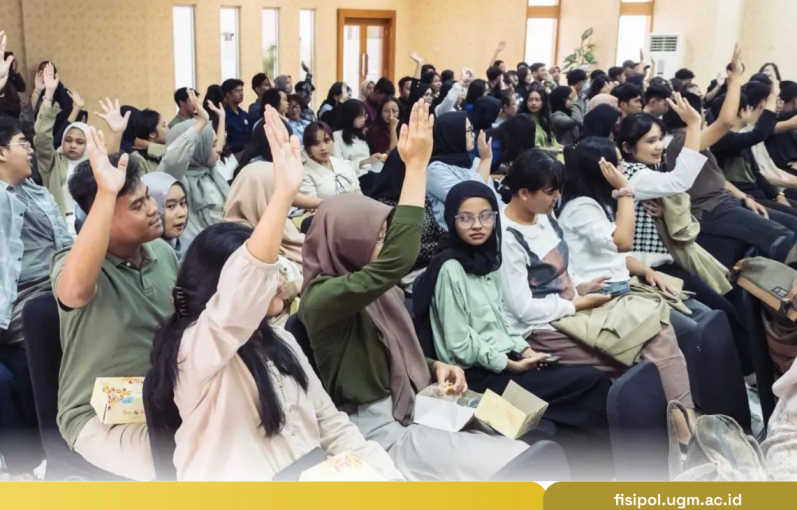
Yogyakarta, August 7, 2024─The Department of Communication Sciences (DIKOM) Faculty of Social and Political Sciences (FISIPOL) Universitas Gadjah Mada (UGM) held a friendly event for new students entitled “New Student Friendly Event and Curriculum Presentation” on Wednesday (7/8). This event took place at Seminar Timur Room and marked the start of the Odd Semester lectures of the 2024/2025 Academic Year.
In addition to having the main objective of providing important information and understanding related to the curriculum that will be taken by new students, this event also functions as a forum for new students to interact and get to know lecturers, education staff, and fellow students. In addition, this interaction is very important in building a supportive academic environment, which is in line with the Sustainable Development Goals (SDGs) related to quality education and education in the context of developing countries.
Opening the event, Dr. Widodo Agus Setianto, M.Sc., emphasized the importance of leaving a lasting impression. He stated, “To leave a lasting impression, one needs to be a good listener, be friendly and authentic, provide support to others, be consistent in building friendship networks, and maintain a positive attitude.” He highlighted the values of empathy and community which are very important in an educational environment.
After the opening remarks, regular undergraduate students of the Department of Communication Sciences were introduced to the available laboratory facilities. The Department of Communication Sciences has several facilities, including the DECODE room, green screen room, and computer labs. These resources are designed to enhance the learning experience and provide practical skills that are very important in the field of communication.
The curriculum map for 2024 was also presented, outlining four stages of study. The first year focuses on the basic aspects of communication, while the second year discusses various arenas and specializations within the field. The third year emphasizes practical communication skills in society, and the fourth year is dedicated to the final project. This structured approach ensures that students receive a comprehensive education that prepares them for future challenges.
In addition to the curriculum presentation, the event also included a session on assessment methods delivered by the lecturers. The assessment criteria include exam scores, active participation in class, assignments, as well as aspects of discipline and academic integrity. The determination of the weightage for each assessment component is left to the lecturer in charge of the course, ensuring a tailored evaluation approach.
In conclusion, the event not only provides academic insight but also builds a sense of belonging among new students. By encouraging interaction with peers and faculty, the event aims to create a supportive community that is essential for academic success. This is in line with the SDGs emphasis on inclusive and equitable quality education.
